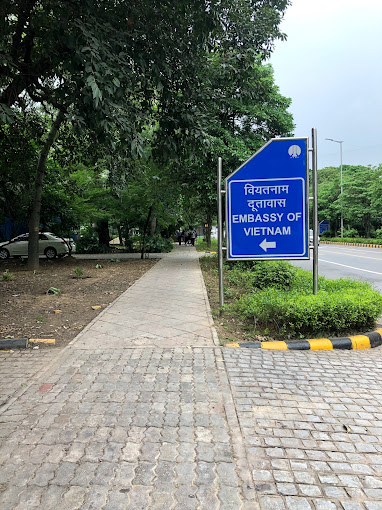Introduction
Vietnam Embassy attestation is a crucial process for individuals and businesses that need to authenticate documents for use in Vietnam. Whether you are planning to work, study, or do business in Vietnam, proper attestation of your documents is essential to ensure their acceptance by Vietnamese authorities. This guide provides an overview of the attestation process, its importance, the types of documents that require attestation, and the steps involved.

Importance of Vietnam Embassy Attestation
Attestation serves as a validation of the authenticity of documents, confirming that they are genuine and have been issued by recognized authorities. This process is vital for several reasons:
Legal Compliance: Ensures that your documents are legally recognized in Vietnam.
Avoiding Fraud: Prevents the use of forged or fraudulent documents.
Smooth Processes: Facilitates seamless processing of visas, work permits, and other formalities.
Building Trust: Establishes credibility with Vietnamese institutions and employers.
Types of Documents for Attestation
Different types of documents require attestation depending on the purpose of your visit or stay in Vietnam. These can be broadly categorized into educational, personal, and commercial documents.
Educational Documents:
- Degree certificates
- Diplomas
- Transcripts
- Mark sheets
- School leaving certificates
Personal Documents:
- Birth certificates
- Marriage certificates
- Divorce decrees
- Medical certificates
- Police clearance certificates
Commercial Documents:
- Incorporation certificates
- Trade licenses
- Power of attorney
- Invoices
- Agreements

Steps for Vietnam Embassy Attestation
The process of attestation involves several steps, each requiring specific actions by various authorities. Here’s a detailed breakdown:
Notarization of the documents:
The first step involves getting the document notarized by a notary public. This step certifies that the document is genuine and can be further processed for attestation.
Education and personal documents Attestation by Local Authorities:
For educational and personal documents, attestation by the relevant state or local authorities (such as the Home Department (for personal documents) or the Education Department (for Education documents) is required.
Ministry of External Affairs (MEA) Attestation:
After local attestation, documents need to be authenticated by the Ministry of External Affairs (MEA) of the respective country. This step is crucial as MEA attestation is a prerequisite for embassy attestation.
Vietnam Embassy Attestation:
The final step involves attestation by the Vietnam Embassy or Consulate. This step certifies that the document is recognized by the Vietnamese government and can be used for official purposes in Vietnam.
Website of Vietnam Embassy: https://vietnamembassydelhi.in/category/connect/

Key Considerations
Translation: Documents in languages other than Vietnamese or English may require translation by a certified translator before submission for attestation.
Processing Time: The entire attestation process can take several days, depending on the type of document and the efficiency of the involved authorities.
Fees: Attestation fees vary based on the type of document and the attesting authority. It is advisable to check with the respective embassy or attestation service provider for the newest fee structure.
Conclusion
Vietnam Embassy attestation is a meticulous process that ensures the authenticity and acceptance of documents for various purposes in Vietnam. By understanding the importance of attestation, the types of documents involved, and the steps required, individuals and businesses can navigate this process smoothly and ensure compliance with Vietnamese regulations. Proper attestation not only facilitates legal and seamless operations but also builds trust and credibility with Vietnamese institutions. If you are unsure about any step in the process, consulting with a professional attestation service can provide valuable guidance and assistance.